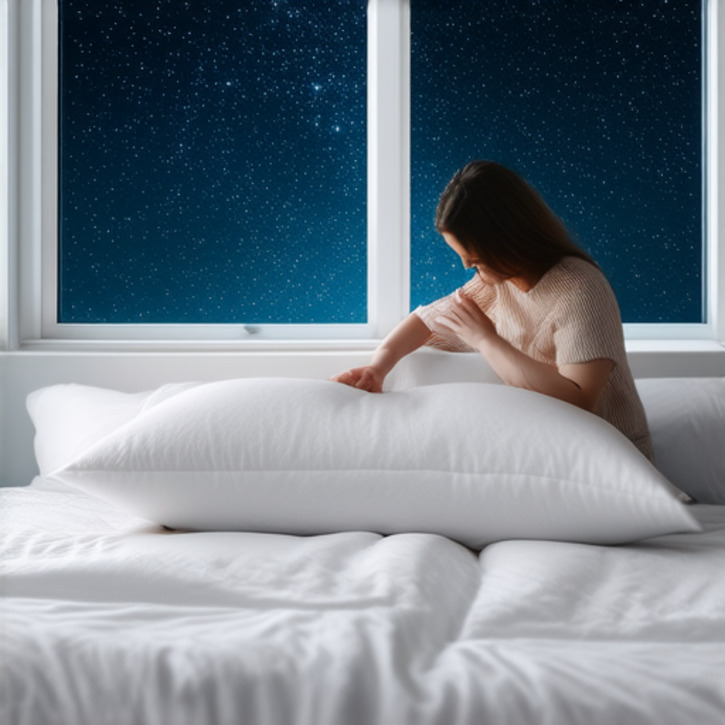How to Choose the Best Non Addictive Sleep Aid for Your Needs

Discovering the Best Non-Addictive Sleep Aids
We’ve all had those nights where sleep just won’t come, and in today’s whirlwind of a world, finding a natural way to drift off without getting hooked is more important than ever. More and more folks are exploring alternatives that promise peaceful, uninterrupted rest without the worry of dependency. Whether you're leaning toward a gentle herbal supplement or making tweaks to your daily routine, there’s a whole smorgasbord of options out there for anyone dealing with sleep troubles.
It’s crucial to know exactly what makes a sleep aid non-addictive before you dive in. Usually, these sleep aids work by naturally calming you and gently ushering you into sleep—without messing with your brain chemistry in a way that might eventually lead to dependency. This is quite different from many conventional sleep medications that often create a tolerance over time. Choosing natural alternatives can help you build a healthier sleep routine without the harsh side effects.
The growing popularity of non-addictive sleep aids mirrors a broader movement toward holistic health and wellness. More people now realize that lasting well-being comes from sustainable, healthy lifestyle choices rather than quick fixes that could come back to bite you later. As ongoing research sheds new light and clinical evidence builds up, these natural alternatives are winning over not just users but also healthcare providers who champion a holistic approach. This shift is all about giving you safer, more dependable options to ensure you get that quality, uninterrupted sleep.
Understanding Sleep Disorders and Their Impact on Your Rest
Sleep disorders pop up in many forms—from battling insomnia to coping with sleep apnea—and each one brings its own unique challenges. Stress, irregular lifestyles, and underlying health conditions are often the culprits behind sleep disruptions. Even seemingly insignificant disturbances, when they happen night after night, can throw off your entire sleep-wake cycle. Pinpointing the roots of your sleeplessness is the first step toward effective management, helping you choose a non-addictive sleep aid that fits your needs like a glove.
Plus, sleep disorders aren’t just about feeling tired—they can seriously impact your overall health. Poor sleep is linked to a weaker immune system, foggy thinking, and even a higher risk of chronic issues like heart disease and diabetes. Knowing the full extent of how these disturbances can affect you underscores the importance of finding a remedy that’s both effective and gentle. By focusing on improving your sleep quality with the right non-addictive sleep aid, you’re not just tackling a one-off problem; you’re investing in your long-term well-being and creating a more balanced, fulfilling life.
Key Things to Consider When Researching Non-Addictive Sleep Aids
When diving into the world of non-addictive sleep aids, it’s all about balancing efficacy with safety. You’ll want to sift through available research and clinical studies to really understand how these aids work and what kind of safety profile they have. The top-quality sleep aid is one that encourages sleep naturally, without triggering unpredictable changes in your brain chemistry. A mix of solid scientific research and honest user reviews creates a fuller picture, making it easier to pick a solution that meets your expectations while keeping things safe.
Don’t underestimate the value of customer testimonials and peer-reviewed studies. While rigorous clinical trials give you the scientific buzz, real-life stories add that human touch—offering practical insights into both the benefits and any hiccups you might encounter. This combination helps you navigate what can sometimes be a murky field of sleep remedies, empowering you to make a more informed choice.
Another big piece of the puzzle is understanding the active ingredients. Many non-addictive sleep aids draw strength from naturally occurring compounds found in herbal teas, supplements, and even certain foods. Ingredients like melatonin, valerian root, chamomile, and magnesium are popular not just for their calming benefits but also because they carry a very low risk of side effects, when used correctly. Getting to know what these components do can help you make a smart choice that works in sync with your body’s natural rhythm.
Comparing Different Non-Addictive Sleep Aid Alternatives
If you’re on the hunt for a non-addictive sleep aid, herbal remedies and natural supplements are often the first stop. These have been trusted for centuries for their soothing properties and their knack for promoting a good night’s sleep. Herbal blends, mixing things like passionflower, lemon balm, and lavender, can ease anxiety and help you drift off naturally. Their gentle effect makes them a popular pick for anyone skeptical of strong chemicals and the risk of addiction.
Over-the-counter options are also gaining traction as solid non-addictive alternatives. These products usually mix natural extracts with vitamins to support healthy sleep. They’re easy to find and often budget-friendly, but always check the labels to see how each ingredient works its magic on your sleep cycle. Being well-informed and weighing the benefits against any downsides should be your guiding approach when adding these remedies to your nightly routine.
And then there’s the lifestyle angle. Not every solution comes in pill or tincture form. Sometimes, simple tweaks like establishing a calming bedtime routine or practicing mindfulness can make a huge difference. Whether it’s getting into a regular exercise routine, cutting down screen time before bed, or reworking your sleep environment, these shifts can boost the effects of your chosen sleep aid. Over time, these changes not only improve your sleep quality but also enhance your overall well-being.
How to Tailor the Best Non-Addictive Sleep Aid to Your Routine
The journey to better sleep starts with understanding your own sleep habits. Everyone’s sleep challenges are a bit different—what works like a charm for one might not be as effective for another. Begin by keeping a sleep diary or using a sleep tracker to jot down when and why you lose sleep. This personal deep-dive can help you pinpoint the trouble spots, making it easier to match your needs with the right non-addictive sleep aid.
Besides self-reflection, chatting with healthcare professionals can be a game changer. A trusted expert can give you personalized advice based on your medical history and current concerns. Whether you’re contending with chronic insomnia, occasional anxiety, or something else entirely, professional insights can help you sift through the vast array of sleep aid options. Together, you can figure out which approach—be it herbal supplements or subtle lifestyle tweaks—will provide you with a balanced, safe, and sustainable solution.
Putting Your Sleep Routine into Practice and Fine-Tuning It
Getting the right sleep aid is just one piece of the puzzle—it’s how you integrate it into your overall sleep routine that counts. Sticking to a consistent sleep schedule is a great way to steady your body clock, adding a sense of predictability to your evenings. By hitting the sack and rising at the same time every day (yes, even on weekends), you create a natural rhythm that makes your chosen non-addictive sleep aid even more effective. Pair that with a calm, distraction-free environment, and you’ve set the stage for a truly rejuvenating night’s sleep.
Mixing in behavioral techniques can also give your routine a boost. Methods like cognitive-behavioral therapy for insomnia (CBT-I) or mindfulness meditation can work wonders alongside natural supplements or herbs. These behavioral strategies help your mind associate your bed with relaxation instead of frustration, leading to a more consistent and healthy sleep cycle.
Remember, it’s important to keep an eye on your progress and be open to making slight adjustments over time. Sleep patterns can shift as life changes, so a bit of ongoing tweaking—like changing the timing of your sleep aid or adding a new relaxation ritual—can make a big difference. This steady process of fine-tuning will help you maximize the benefits of your non-addictive sleep aid, paving the way for many nights of deep, restorative sleep.
Wrapping It Up: Embracing Restful Nights with Non-Addictive Sleep Aids
Choosing a non-addictive sleep aid isn’t about following a one-size-fits-all recipe—it’s a personal journey toward better health and well-being. In this chat, we’ve covered the essentials—from understanding the roots of sleep disturbances and what makes these aids work, to exploring various natural and lifestyle-based solutions. By keeping track of your sleep patterns, getting clued up on the ingredients, and leaning on professional guidance when needed, you’re setting yourself up for a sleep solution that feels both natural and supportive.
As you work on your sleep routine, remember that achieving truly restful nights is a dynamic, ever-evolving process. Whether you choose natural supplements, grab an over-the-counter option, or revamp your lifestyle habits, the ultimate goal is to boost your sleep quality and safeguard your long-term health. So, trust the process, be patient with yourself, and build a nighttime routine that honors your body’s natural cadence. Here’s to nights filled with deep relaxation and mornings where you wake up refreshed and ready to take on the day—all thanks to the perfect non-addictive sleep aid designed just for you.





